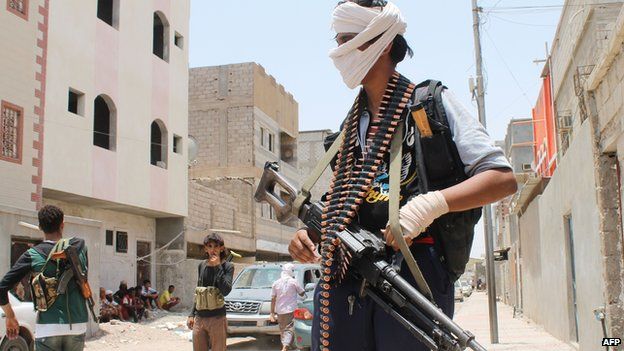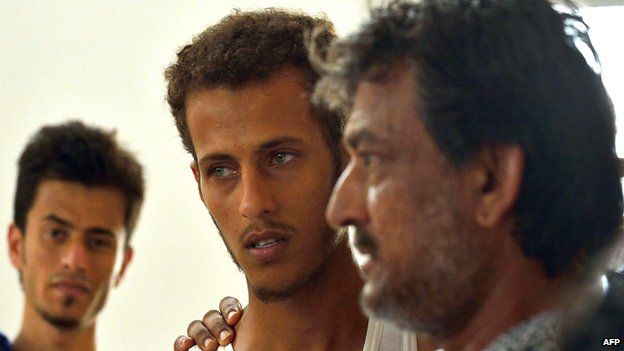Yemen conflict: UN to vote on Houthi sanctions



In earlier negotiations, Russia said any arms embargo must apply to all sides in the conflict — not just the Houthis.
Russia had also reportedly argued for a "humanitarian pause" in the air campaign that would allow the delivery of aid and the evacuation of foreigners — but this text was dropped from the final draft.
Yemen has been in chaos since Houthi rebels took full control of Sanaa in January and placed current President Abdrabbuh Mansour Hadi under house arrest.
Mr Hadi escaped and took refuge in Aden in February, but left the country at the end of March when the Houthis reached the outskirts of the southern port city.
Saudi Arabia began air strikes last month against the Houthis, a Zaidi Shia rebel movement. Iran denies giving military aid to the rebels.
The US last week said it would speed up arms deliveries to the coalition fighting the Houthis.
Who is fighting whom in Yemen?
Houthis — The Zaidi Shia Muslim rebels from the north overran Sanaa last year and then expanded their control. They want to replace Mr Hadi, whose government they say is corrupt. The US alleges Iran is providing military assistance to the rebels.
Ali Abdullah Saleh — Military units loyal to the former president — forced to hand over power in 2011 after mass protests — are fighting alongside the Houthis.
Abdrabbuh Mansour Hadi — The president fled abroad in March as the rebels advanced on Aden, where he had taken refuge in February. Sunni Muslim tribesmen and Southern separatists have formed militia to fight the rebels.
Saudi-led coalition — A US-backed coalition of nine, mostly Sunni Arab states says it is seeking to "defend the legitimate government" of Mr Hadi.
Al-Qaeda in the Arabian Peninsula — AQAP opposes both the Houthis and President Hadi. A rival affiliate of Islamic State has also recently emerged.
Политика конфиденциальности | Правила пользования сайтом







